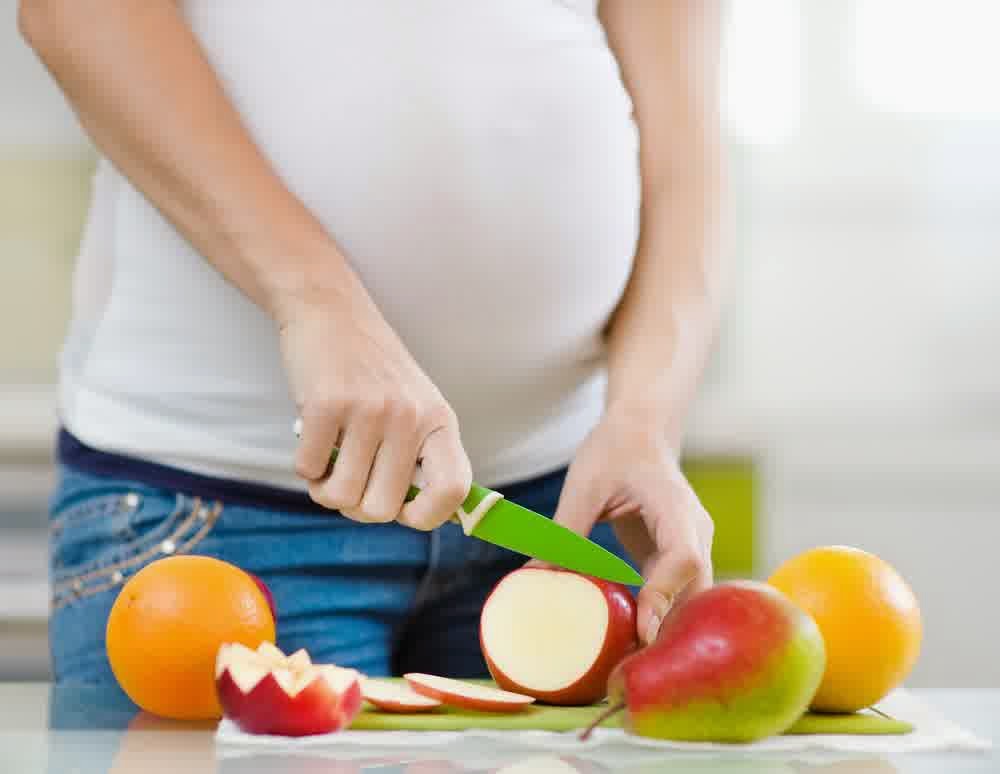Nutrition is important during pregnancy. As you age the womb, then the nutritional needs of pregnant women will increase, especially after entering the second trimester of pregnancy. Because at that time, the rapid growth of the fetus takes place - especially the development of the brain and nervous system? and requires optimal nutrition.
Nutrients are required:
1. Carbohydrate and fat as a source of energy to produce a calorie can be obtained from cereals, tubers.
2. Protein as a source of builder substances can be obtained from meat, fish, eggs and nuts.
3. Mineral as regulators can be obtained from fruits and vegetables - vegetables.
4. Vitamin B complex is useful for maintaining the nervous system, muscles and heart to function normally. Can be found in cereals, grains - whole grains, nuts, green leafy vegetables, yeast, eggs and dairy products.
5. Vitamin D is useful for bone formation and growth of your baby. The source is found in fish liver oil, egg yolk and milk.
6. Vitamin E is useful for the formation of healthy red blood cells. Eat institutions mainly wheat grains, nuts, vegetable oils and green vegetables.
Nutrition During Pregnancy
7. Folic acid is useful for the development of the nervous system and blood cells, found in many dark green vegetables such as spinach, cauliflower and broccoli. In fruits, folic acid found in oranges, bananas, carrots and tomatoes. The need for folic acid during pregnancy is 800 mcg per day, especially in the first 12 weeks of pregnancy. Folic acid deficiency can interfere with the formation of the brain, until the birth defects in the central nervous system and brain of the fetus.
8. Iron is needed for pregnant women to avoid anemia, abundant in green leafy vegetables (such as spinach, kale, cassava leaves, papaya), meat and liver.
9. Calcium, necessary for the growth of fetal bones and teeth, as well as to protect pregnant women from osteoporosis if calcium needs of pregnant women are not fulfilled, then the lack of calcium will be taken from the mother's bones. Other sources of calcium are green leafy vegetables and beans. Currently the best calcium obtained from milk and other dairy products. Milk also contains many vitamins, such as vitamins A, D, B2, B3, and vitamin C
Posted by , Published at 11:07 PM and have
0
comments











No comments:
Post a Comment